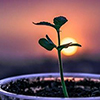Alex Jenkin, project manager at the Gatsby Plant Science Education Programme (GPSEP), a team administered by the Sainsbury Laboratory, has been selected to join an international group of 95 women in science on a three-week expedition to the Antarctic Peninsula.
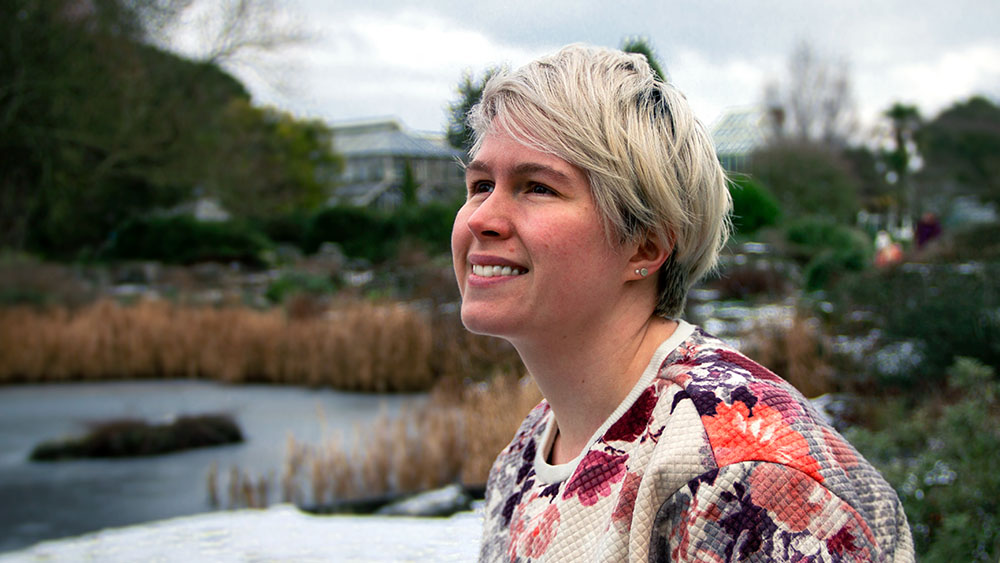
The expedition, departing from Ushuaia, Argentina, in November is part of a global initiative called Homeward Bound. The project aims to elevate the status of women in science and empower them to take a leadership role in issues related to climate change and sustainability, and to contribute to policy and decision making in science.
Alex said she was excited to be part of the year-long leadership programme, which culminates in a three-week trip to Antarctica, because of the visibility and strategy training she will undergo, as well as the collaboration prospects the programme provides.
“This is an amazing opportunity and I am delighted to become part of this global group of passionate women who are coming together to network, support each other and develop as leaders,” Alex said.
“I love science communication and care very deeply about the way science is represented in schools. The professional development activities over the coming year and the projects we undertake will help me to improve my own skills in science education and communication. The collective and collaborative drive of the Homeward Bound programme is an inspiration for me to take on the challenges of climate change in both my professional and personal roles in science education and communication.
"Learning from these scientists from diverse backgrounds from 33 countries will support me with developing new and more effective ways of teaching and sharing science. I hope the programme will also lead to valuable collaborations for future projects in science education.”
As part of the GPSEP team, Alex manages the Science and Plants for Schools (SAPS) project where she works directly with teachers, school science technicians and students to share her enthusiasm about plant science. The project, which is core-funded by the Gatsby Charitable Foundation, develops curriculum resources to support science teaching and supports plant scientists to get involved in education. SAPS also works closely with those who train teachers, aiming to ensure that all school science teachers enter the profession able to teach plant science topics with confidence and primed with plant examples that range across the biology curriculum. The project fosters links with exam boards, textbook authors and curriculum developers to help ensure that plant science is appropriately represented in school science curricula and specifications.
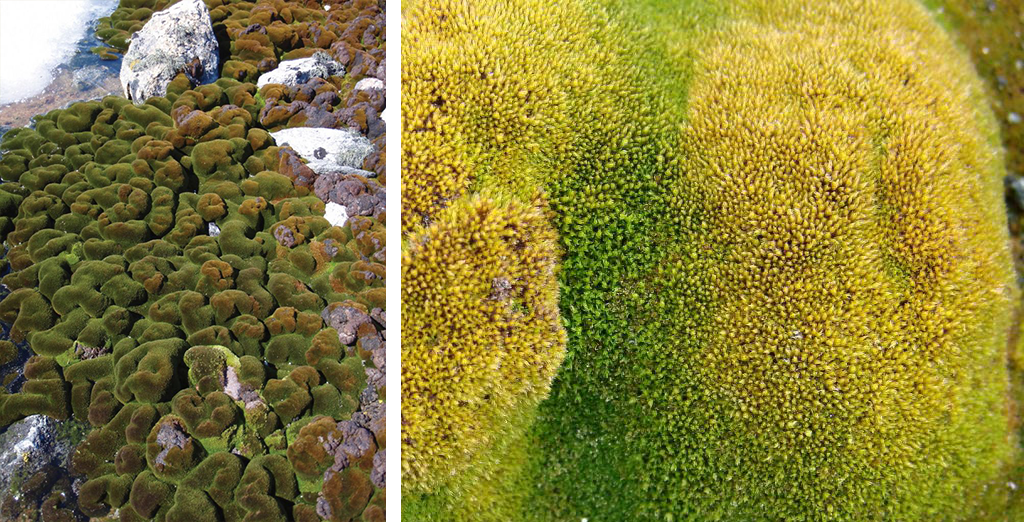
A typical moss turf located in the Antarctic Specially Protected Area near Casey station. Photos by Sharon Robinson and James Lowe (www.antarctica.gov.au).
Alex is keen to see some Antarctic plants in situ. “Photosynthetic organisms are the foundation for all life on earth and they can be found in even the most inhospitable environments, including the continent of Antarctica. Specialised liverworts, mosses, and photosynthetic microbes that are specially adapted to surviving in extreme environments can be found living in the cracks and pores of rocks and even within ice. There are also two flowering plant species that are found on the peninsula. Climate change poses a serious threat to these unique Antarctic plants, which are very fragile and sensitive to any type of disturbance. There is a lot of research in Antarctica monitoring the plant life. There is potential to develop new learning resources that incorporate the amazing adaptations of these plants and highlight their fragile nature.
“One of the things that I am most looking forward to is meeting the research scientists that are working in Antarctica. The ship we are travelling on, MS Hebridean Sky, will visit a number of different science research stations and field sites, so we will get to meet people studying many different aspects of this incredible environment, including its surrounding ocean, ice-sheets and the plants that have made Antarctica their home.”
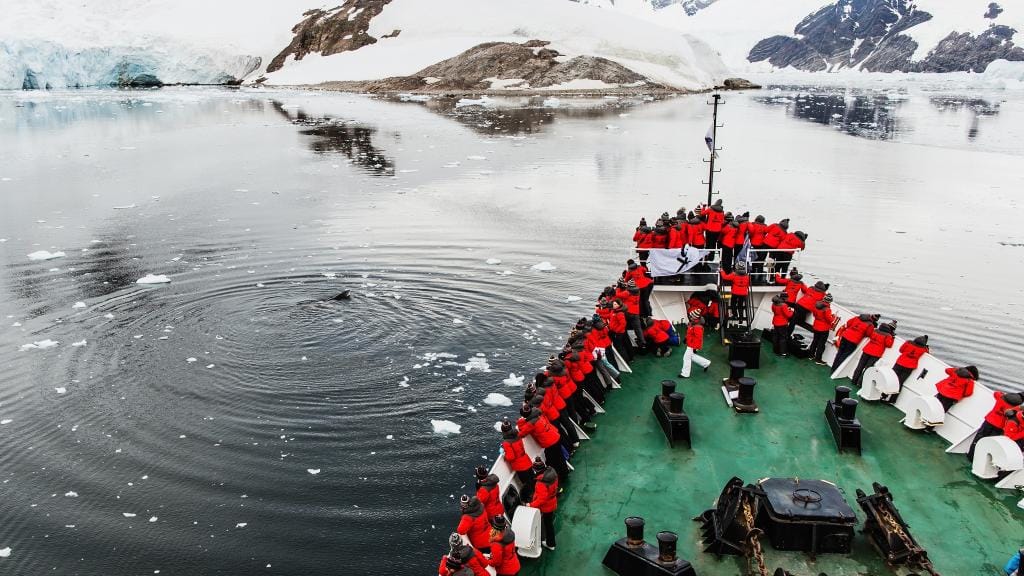
A previous Homeward Bound expedition had a close-up encounter with a wale. Photo provided by Homeward Bound Projects.
While having frequently pottered around the Scottish shoreline on small boats during family holidays, the Antarctic voyage will be the first open-ocean experience for Alex.
“It will take approximately two days to cross the treacherous Drake Passage, which is known as either the ‘Drake Lake’ or the ‘Drake Shake’ depending on the weather. I’ve never been sea-sick on small boats or ferries before, but I do get travel sick in cars – so I will just have wait to see if I am affected or not,” she said.
The Homeward Bound programme is supported by sponsors who subsidise almost half of the £24,000 cost for each participant. The remaining £13,000 must be raised by participants themselves, in addition to sourcing Antarctic clothing, insurance and flights. To support the cost of the trip, Alex has set-up a donation page to raise funds. Please support Alex if you are able – you can make donations from as little as £1.
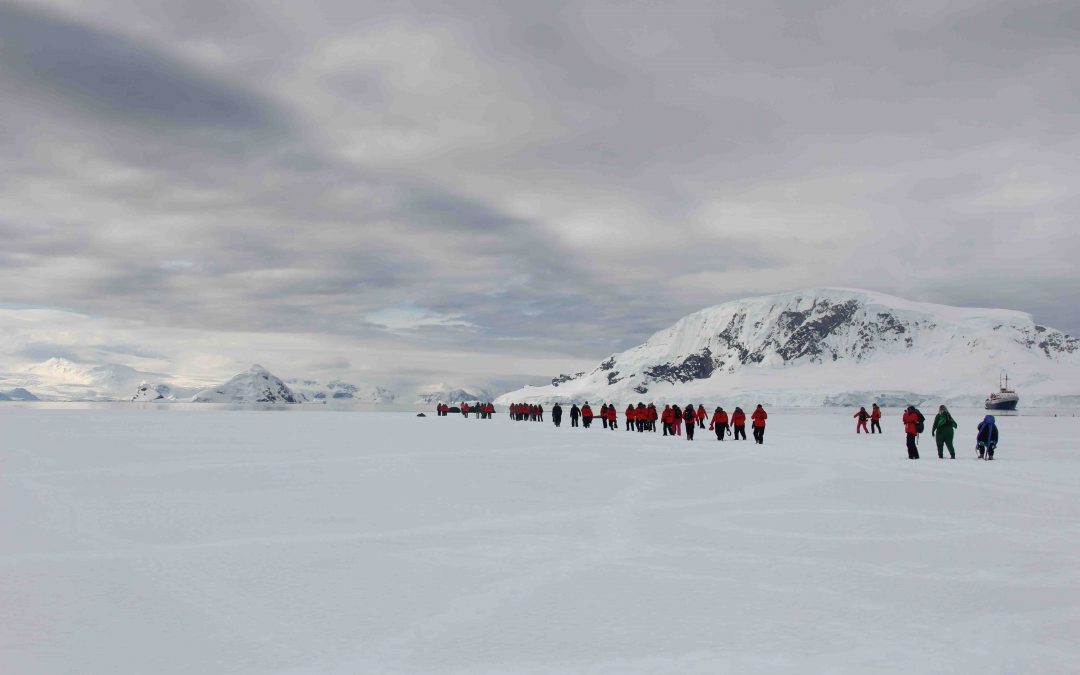
A Homeward Bound expedition crosses the ice to reach one of the Antarctic research stations. Photo provided by Homeward Bound Projects.
More about the Homeward Bound expedition
Alex is joining the fourth Homeward Bound expedition, which aims to develop a global network of women to collaborate on science and action on climate and environmental change. The expedition is a culmination of a year-long professional development program aimed at bringing more women in STEMM (Science, Technology, Engineering, Maths and Medicine) to the leadership table in the mitigation and adaptation to environmental change. Homeward Bound aims to include 1,000 women in the 10-year program. Antarctica serves as the natural backdrop for collaborative work on climate change because it represents the relative fragility of the natural world and is highly sensitive to changes in global temperature.
Applications for the fifth Homeward Bound cohort close at 10am on 4th April 2019 (Australian Eastern Daylight Savings Time). Alex is happy to discuss the application process with anyone considering applying. Application information can be found on the Homeward Bound website.





